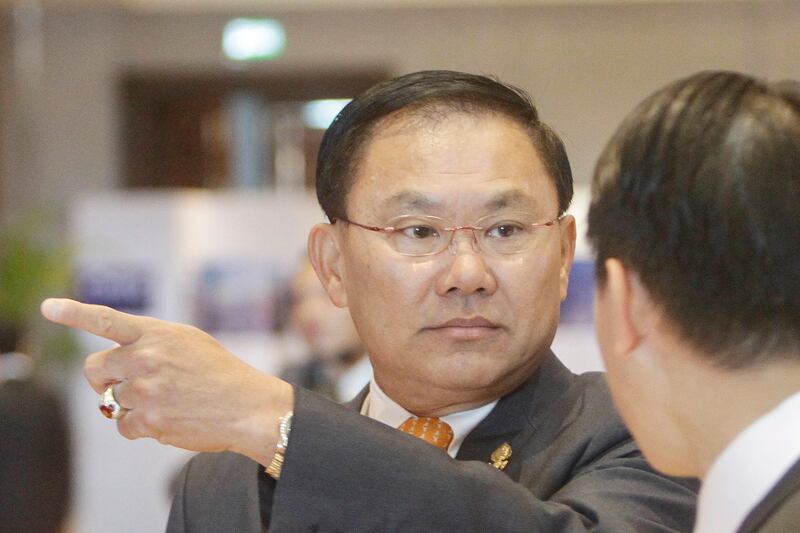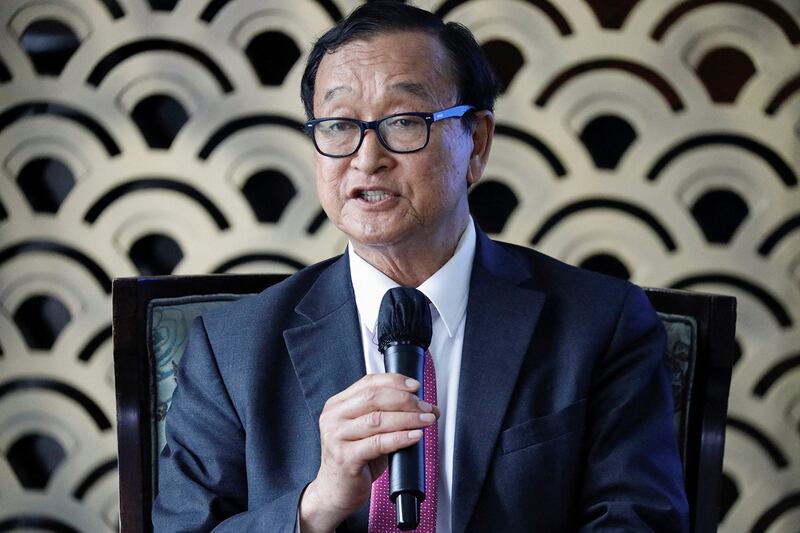Newsweek magazine says it has retracted a paid article featuring an interview with the managing director of Cambodia’s L.Y.P. Group, which the United States last month sanctioned for its owner’s alleged ties to human trafficking.
L.Y.P. Group and its owner, Ly Yong Phat, were hit with sanctions by the U.S. Treasury Department on Sept. 12 under the Global Magnitsky Act, which means Americans and U.S. companies are prohibited from doing business with the tycoon and his conglomerate.
According to the Treasury Department, a resort owned by the tycoon near the Thai border was home to a scam compound, where people are kidnapped and tortured into carrying out phone scams.

But last week’s edition of Newsweek carried an Q&A-style article with L.Y.P. Group Managing Director Andy Seng, who touts Cambodia’s “low labor costs” and “free flow of the U.S. dollar” as among the biggest reasons foreign investors should pour money into Cambodia.
The article was part of a 17-page paid "advertorial," which is paid content made to look like regular news. The spread, published in Friday's edition, promotes the benefits of doing business in Cambodia and leads with a full-page image of Prime Minister Hun Manet.
Newsweek said it removed the article about L.Y.P. from the advertorial, but copies of it remain online, including in a PDF version that is still available for download on Newsweek's website, even if it is not promoted on the site's homepage. Electronic copies of the magazine available through public library systems also feature the article.
US sanctions
Cambodia's Foreign Ministry has called the sanctions against the tycoon and his company for human trafficking " misleading."
Newsweek did not respond to a request for comment from Radio Free Asia about whether the article was taken down due to concerns it may violate the sanctions issued by the U.S. government last month.
However, in a comment to the Overseas Press Club of Cambodia — a group representing foreign and independent journalists in the country — a spokesperson for the magazine said the “sponsored content” was the responsibility of a third party known as The Report Company.
“The agreement for the sponsored content authored by The Report Company Global Media Services was signed in the first half of 2024, several months before the September 12th LYP Group sanctions,” the Newsweek spokesperson said in an email seen by RFA.
However, the spokesperson also acknowledged that Newsweek’s editorial staff had reviewed the content before it was published and said that a decision to remove it had only been made afterwards.
“[W]hile all content is edited for clarity by Newsweek staff, upon additional review, Newsweek requested that LYP Group be removed from the advertorial,” the spokesperson explained.
A separate email from Newsweek identified The Report Company as “the officially appointed sales representative for Newsweek in Cambodia.” Another said that Cambodia’s government had not paid for the advertorial, but did not identify who did pay. It added that “certain members of the Cambodian cabinet” had been interviewed.
Cambodian opposition leader Sam Rainsy told RFA he was shocked to learn of the 17-page spread in Newsweek promoting the Cambodian government, even if he was pleased that part of it was taken down.

“I was very surprised, because I thought the [American] media were independent and not corrupt, as they are in Cambodia,” he said. “This shows that things are more complex. I hope Newsweek will clear any suspicions that money can play a role in their editorial line.”
‘Selling their integrity’
Phil Robertson, the director of the Bangkok-based Asia Human Rights Labour Advocates, said the situation called into question the wisdom of large news mastheads offering their brand to foreign governments with patchy human rights records through “sponsored” articles.
“Newsweek got it wrong to publish a paid for propaganda puff piece extolling some of the worst actors in Cambodia who have profanely enriched themselves on the backs of the Cambodian people,” Robertson said, adding that “at least they recognized” their error.
“Media outlets shouldn't be selling their integrity for advertising dollars is the key takeaway from all of this,” he said.
L.Y.P Group includes a plethora of different businesses in Cambodia, including the PNN television station, a golf course, a water park, hotels and resorts, supermarkets and a large exhibition center.
Ly Yong Phat, meanwhile, has also long served as a senator for the ruling Cambodian People’s Party and is an advisor to Senate President Hun Sen, who last year stood down as prime minister and handed power to his eldest son after nearly four decades in office.
Edited by Malcolm Foster.
